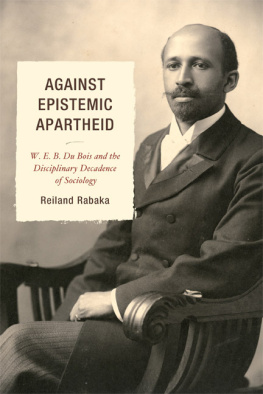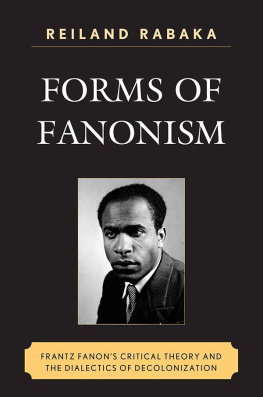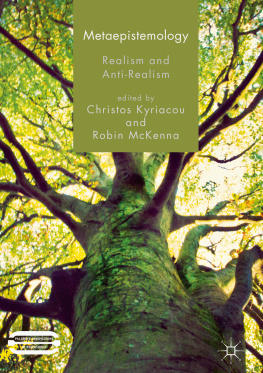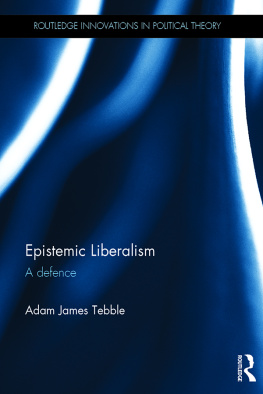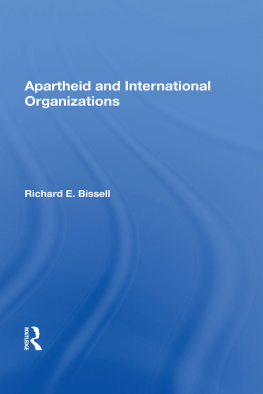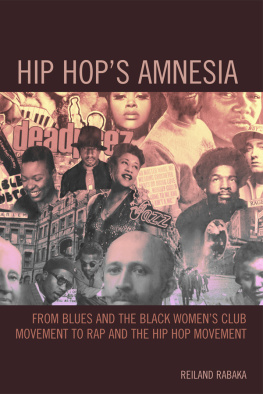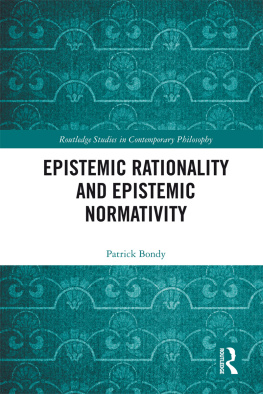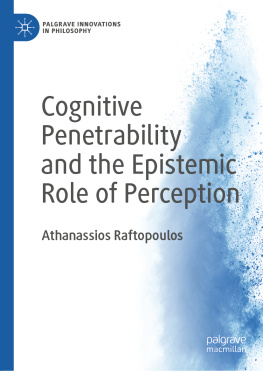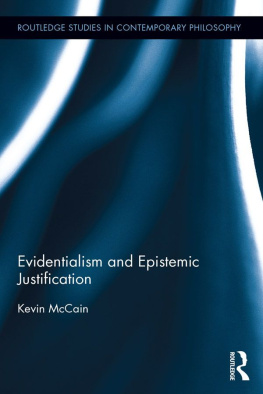Reiland Rabaka - Against Epistemic Apartheid
Here you can read online Reiland Rabaka - Against Epistemic Apartheid full text of the book (entire story) in english for free. Download pdf and epub, get meaning, cover and reviews about this ebook. year: 2010, publisher: Lexington Books, genre: Politics. Description of the work, (preface) as well as reviews are available. Best literature library LitArk.com created for fans of good reading and offers a wide selection of genres:
Romance novel
Science fiction
Adventure
Detective
Science
History
Home and family
Prose
Art
Politics
Computer
Non-fiction
Religion
Business
Children
Humor
Choose a favorite category and find really read worthwhile books. Enjoy immersion in the world of imagination, feel the emotions of the characters or learn something new for yourself, make an fascinating discovery.
- Book:Against Epistemic Apartheid
- Author:
- Publisher:Lexington Books
- Genre:
- Year:2010
- Rating:5 / 5
- Favourites:Add to favourites
- Your mark:
- 100
- 1
- 2
- 3
- 4
- 5
Against Epistemic Apartheid: summary, description and annotation
We offer to read an annotation, description, summary or preface (depends on what the author of the book "Against Epistemic Apartheid" wrote himself). If you haven't found the necessary information about the book — write in the comments, we will try to find it.
Against Epistemic Apartheid — read online for free the complete book (whole text) full work
Below is the text of the book, divided by pages. System saving the place of the last page read, allows you to conveniently read the book "Against Epistemic Apartheid" online for free, without having to search again every time where you left off. Put a bookmark, and you can go to the page where you finished reading at any time.
Font size:
Interval:
Bookmark:
Apartheid
Apartheid
and the Disciplinary
Decadence of Sociology
Reiland Rabaka

LEXINGTON BOOKS
A division of
ROWMAN & LITTLE FIELD PUBLISHERS, INC.
Lanham Boulder New York Toronto Plymouth, UK
Published by Lexington Books
A division of Rowman & Littlefield Publishers, Inc.
A wholly owned subsidiary of The Rowman & Littlefield Publishing Group, Inc.
4501 Forbes Boulevard, Suite 200, Lanham, Maryland 20706
http://www.lexingtonbooks.com
Estover Road, Plymouth PL6 7PY, United Kingdom
Copyright 2010 by Lexington Books
All rights reserved. No part of this book may be reproduced in any form or by any electronic or mechanical means, including information storage and retrieval systems, without written permission from the publisher, except by a reviewer who may quote passages in a review.
British Library Cataloguing in Publication Information Available
Library of Congress Cataloging-in-Publication Data
Rabaka, Reiland, 1972
Against epistemic apartheid : W. E. B. Du Bois and the disciplinary decadence of sociology / Reiland Rabaka.
p. cm.
Includes bibliographical references and index.
ISBN 978-0-7391-4597-5 (cloth : alk. paper) ISBN 978-0-7391-4598-2 (pbk. : alk. paper) ISBN 978-0-7391-4599-9 (electronic)
1. Du Bois, W. E. B. (William Edward Burghardt), 18681963Political and social views. 2. SociologyPhilosophy. 3. SociologyUnited StatesHistory. 4. SociologyPolitical aspectsUnited StatesHistory. 5. DegenerationSocial aspectsUnited StatesHistory. 6. African AmericansIntellectual life. 7. African AmericansSegregationHistory. 8. United StatesIntellectual life18651918. 9. United StatesRace relationsHistory19th century. 10. United StatesRace relationsHistory20th century. I. Title.
E185.97.D73R322 2010
303.484092dc22 2010001799
 The paper used in this publication meets the minimum requirements of American National Standard for Information SciencesPermanence of Paper for Printed Library Materials, ANSI/NISO Z39.48-1992.
The paper used in this publication meets the minimum requirements of American National Standard for Information SciencesPermanence of Paper for Printed Library Materials, ANSI/NISO Z39.48-1992.
Printed in the United States of America
For my intellectual ancestor
W. E. B. Du Bois
For my mentors and intellectual elders
Lucius T. Outlaw Jr.
William M. King
Lewis R. Gordon
And, as with all of my work,
for my mother, grandmothers, and great-aunt
Marilyn Jean Giles
Lizzie Mae Davis
Elva Rita Warren
Arcressia Charlene Connor
Nkosi Sikelel iAfrika
Against Epistemic Apartheid is not simply an intellectual exercise concerned with W. E. B. Du Boiss long-overlooked contributions to sociology. Much more, it also stands as a testament to what the many people who have contributed to my personal, professional, and radical political development have taught me. W. E. B. Du Bois, as I will repeat throughout the text, represents an intellectual-activist ancestor who provides me with several paradigms and points of departure to explore Africana studies contributions to the deconstruction and reconstruction of both sociology and critical social theory. Although his thought and texts provide the primary points of departure here, the theories and praxes of many, many others have influenced and informed my conceptions of radical politics and critical social theory. Each chapter of this book bears the imprint of the diversealthough often disconnectedintellectual and political arenas and agendas I draw from and endeavor to establish critical dialogue with. As a consequence, the list of intellectuals, activists, archivists, institutions, and organizations to which I am indebted is, indeed, enormous. Such being the case, I hope I may be forgiven for deciding that the most appropriate way in which to acknowledge my sincere appreciation is simply to list them below without the protracted praise each has so solemnly earned. My deepest gratitude and most heartfelt asante sana (a thousand thanks) is offered, first and foremost, to my family: my mother, Marilyn Giles; my grandmothers, Lizzie Mae Davis (deceased) and Elva Rita Warren; my great-aunt, Arcressia Charlene Connor; my older brother and his wife, Robert Smith II and Karen Smith; my younger brother, Dwight Clewis; my nieces and nephews, Journe Clewis, Dominique Clewis, Kalyn Smith, Robert Smith III, Ryan Smith, and Remington Smith; my father, Robert Smith I; my grandfathers, Joseph Warren (deceased) and Jafari Jakuta Rabaka (deceased); and my innumerable aunts, uncles, and cousins throughout the Americas, the Caribbean, and Africa.
An undertaking as ambitious as Against Epistemic Apartheid would have been impossible without the assistance of colleagues and comrades, both far and wide. I express my earnest appreciation to the following fine folk, who each in their own special way contributed to the composition and completion of this book: Arthur McFarlane, W. E. B. Du Boiss great-grandson; Mireille Fanon Mends-France, Frantz Fanons daughter; Rhonda Tankerson; Lamya Al-Kharusi; Sara Bloom; Denise Lovett; Adam Clark; Elzie Billops; Sigmund Washington; Patrick DeWalt; Awon Atuire; Stacey Smith; Kimberly Marshall; Toroitich Chereno; De Reef Jamison; Anthony Lemelle; Troy Barnes; Zachary Epps; Ursula Lindqvist; Tiya Trent; LaNeice Littleton; Paget Henry; Deward Walker; Janette Klingner; Margaret LeCompte; James McGoodwin; Alan Sica; Vincent Harding; George Junne; Mpozi Tolbert (deceased); the National Association for Ethnic Studies (NAES); and the Association for the Study of African American Life and History (ASALH).
I cannot adequately convey the depth of my gratitude to the National Council for Black Studies (NCBS) for providing me with the critical feedback and fora to deepen and develop my relationship with W. E. B. Du Bois and the Africana tradition of critical theory. I have been presenting my research on Africana critical theory at NCBSs annual conferences for more than a decade. Along with saying nashukuru sana (very special thanks) to NCBS in general, I would be remiss not to single out several members whose key contributions and intellectual encouragement have made the present volume possible. I express my earnest appreciation to the following NCBS colleagues and comrades: Molefi Asante; Maulana Karenga; James Turner; Delores Aldridge; James Stewart; Martell Teasley; Ronald Stephens; James Conyers; Charles Jones; Sundiata Cha-Jua; Perry Hall; Shirley Weber; Barbara Wheeler; Alfred Young; Bill Little (deceased); Munasha Furusa; Akinyele Umoja; Fred Hord; Terry Kershaw; Jeffrey Ogbar; Scot Brown; Alan Colon; Abdul Nanji; Christel Temple; Patricia Reid-Merritt; Kevin Cokley; Salim Faraji; Cecil Gray; Ricky Jones; and Mark Christian.
The faculty, staff, and students in the Department of Ethnic Studies and the Center for Studies of Ethnicity and Race in America (CSERA) at the University of Colorado at Boulder deserve special thanks for their patience and critical support. Nashukuru sana to our steadfast staff, especially Sandra Lane, Jillian Mariani, and Tiya Trent, for always being there and lending a struggling brother a helping hand. I am also deeply indebted to my colleagues and comrades who selflessly serve on the faculty in the Department of Ethnic Studies, each of whom have patiently listened to me rant and rave about Du Boiss sociological negation over the last couple of years. I say nashukuru sana, therefore, to William King, Deward Walker, Elisa Facio, Daryl Maeda, Seema Sohi, Emma Perez, Arturo Aldama, Danika Medak-Saltzman, Doreen Martinez, Bianca Williams, Stewart Lawler, and Vivian Delgado. Likewise, I express my gratitude to the National Science Foundation (NSF) and the Leadership Education for Advancement and Promotion (LEAP) Program in the Office of Faculty Affairs at University of Colorado at Boulder for providing me with much-needed research funds which facilitated the composition and completion of this book.
Font size:
Interval:
Bookmark:
Similar books «Against Epistemic Apartheid»
Look at similar books to Against Epistemic Apartheid. We have selected literature similar in name and meaning in the hope of providing readers with more options to find new, interesting, not yet read works.
Discussion, reviews of the book Against Epistemic Apartheid and just readers' own opinions. Leave your comments, write what you think about the work, its meaning or the main characters. Specify what exactly you liked and what you didn't like, and why you think so.

